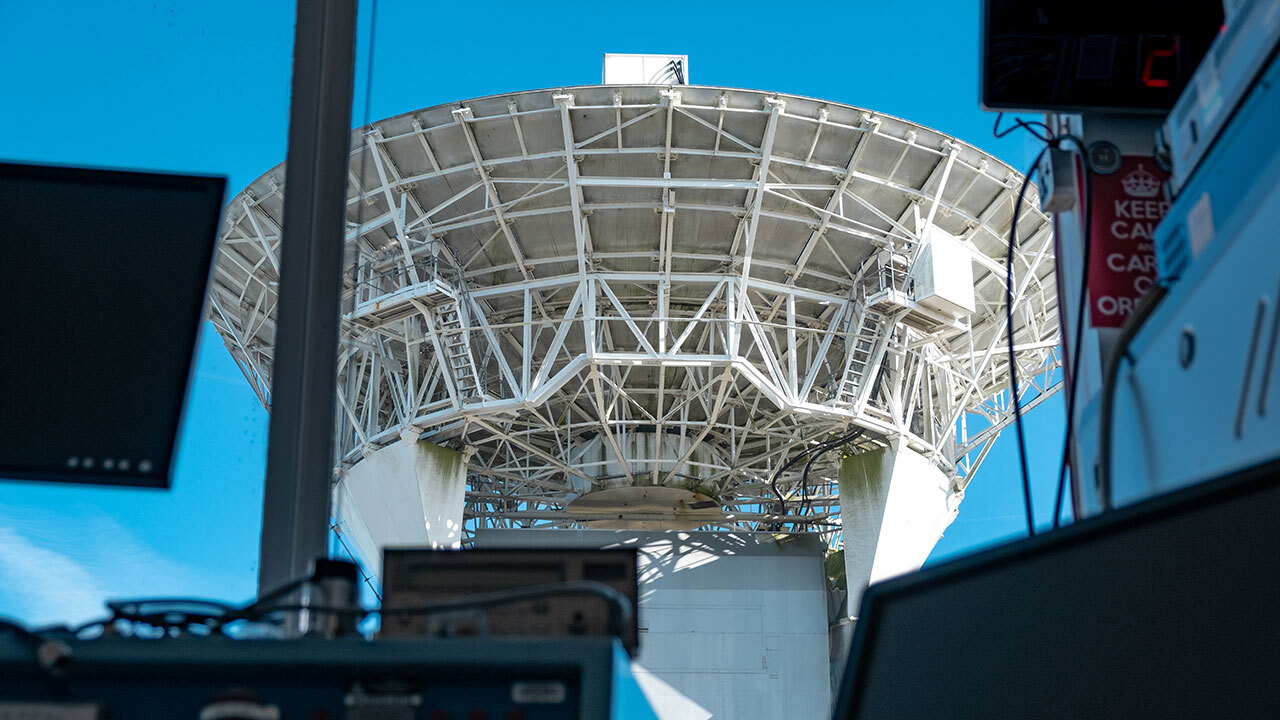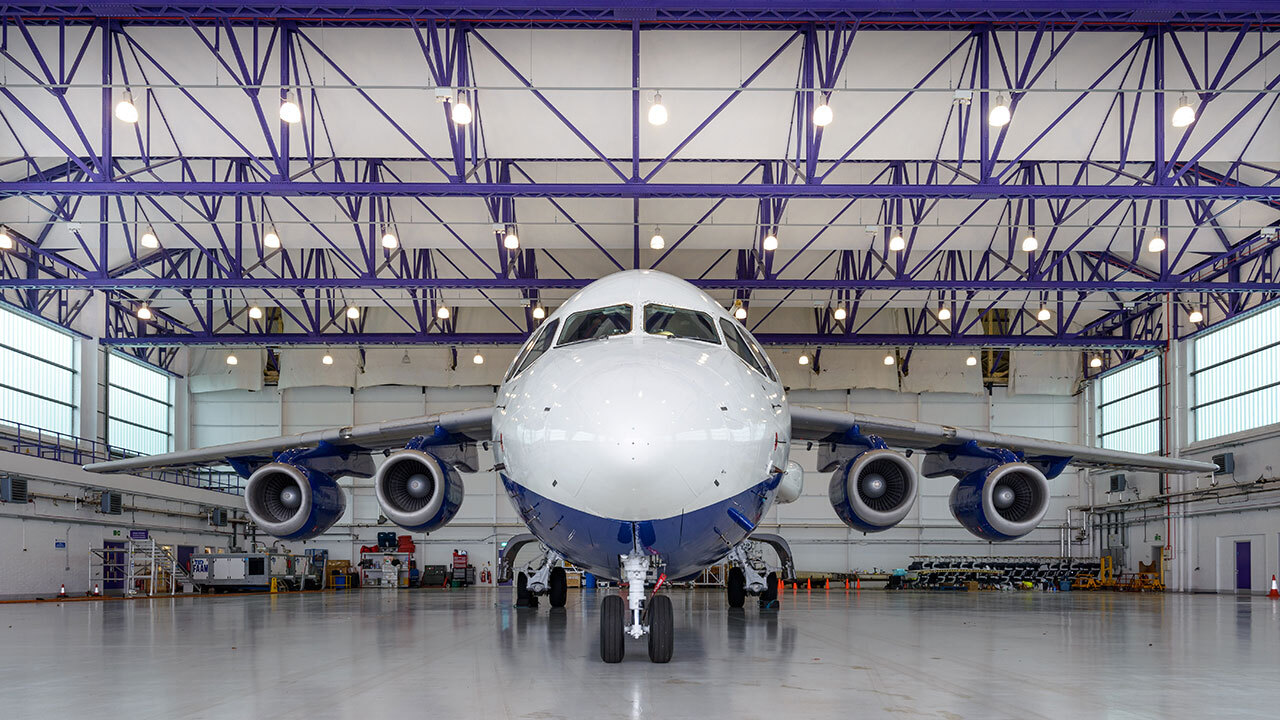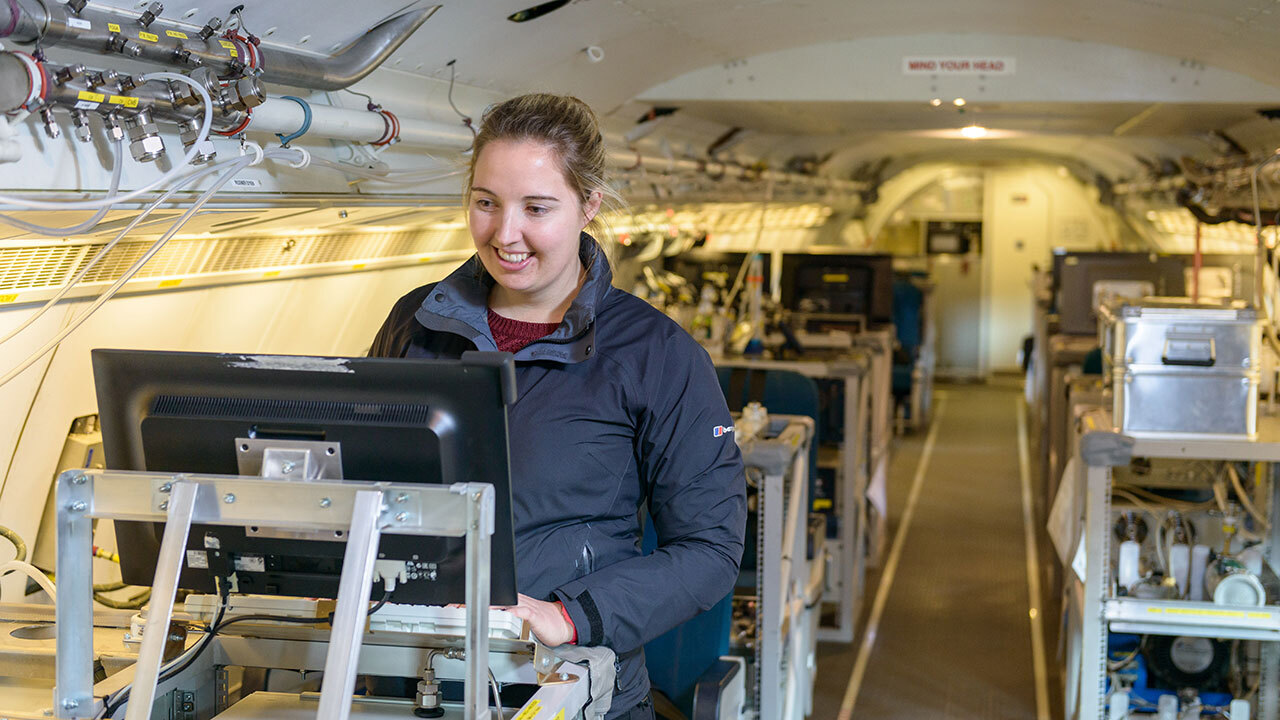News
Supporting air quality assessments in the UK
Posted on June 17, 2021 (Last modified on August 12, 2024) • 4 min read • 790 wordsAir pollution is the largest environmental health risk we face today. To better understand the sources of air pollution, and the impacts on our health and ecosystems, teams of researchers across the UK are monitoring the quality of the air we breathe.
It is essential that the scientific community can access data and services to research this important topic. On Clean Air Day, we share how the Centre for Environmental Data Analysis (CEDA) currently supports the scientific air quality community.

Image 1: The Chilbolton Observatory - measures particle mass concentrations, carbon dioxide and water vapour concentrations. Credit: NCAS
Archival of air quality data
The Environment Bill requires the UK Government to set ambitious air quality targets that will allow cleaner air for all. In order to meet these targets, it is essential that important air quality datasets are freely available for monitoring how the UK is reducing its emissions.
The CEDA Archive is the UK’s dedicated data centre for atmospheric data, our role is to promote good data management practices to enable wider reuse of important data, such as air quality datasets.
Air quality is measured across the UK through a network of monitoring stations, research campaigns, atmospheric observatories and satellites. The long-term CEDA Archive holds over 1000 freely available* air quality datasets, such as:
- Air quality observations on board the specially-adapted aircraft, operated by the FAAM Airborne Laboratory (FAAM), including greenhouse gas emissions and aerosol composition and concentration data.
- Ground-based air quality measurements collected at a variety of long-term observational facilities, run by the National Centre for Atmospheric Science AMOF, including;
- Chilbolton - measures particle mass concentrations, carbon dioxide and water vapour concentrations
- Weybourne - measures nitrogen oxide, carbon monoxide, hydrogen, methane and sulfur hexafluoride
- BT-Tower in London - measures ozone and nitrous oxide
- Cape Verde - measures carbon dioxide, halocarbon, ozone, carbon monoxide, methane, nitrous oxide and more!
- UK Deriving Emissions linked to Climate Change Tall tower network - measurements from four sites in the UK and Ireland measuring greenhouse and ozone depleting gases from tall telecommunication towers
- Penlee Point Observatory - long term observatory established by Plymouth Marine Laboratory - measurements of sulfur dioxide, ozone and total number of aerosols in the atmosphere
- European Space Agency Climate Change Initiative - air quality measurements derived from satellite data

Image 2: The FAAM aircraft in the hangar. Credit: NCAS
Engaging with science, industry and policy experts
Alongside archiving data, the CEDA team is heavily involved with sharing expertise in areas such as data curation, environmental science, and analysis services.
Several CEDA staff contribute their expertise to the Science and Technology Facilities Council’s (STFC) Air Quality Network - known as SAQN. This network brings together over 450 members from research, industry and policy - all with an interest in air quality research. The SAQN aims to make the best use of STFC research, capabilities and facilities to address air quality challenges by bringing together this multi-disciplinary community. CEDA’s host institute is STFC, making it well placed to engage with the network.
Many members of the network are not from our core user communities, so may not be familiar with CEDA or STFC’s work. We have been helping explain our services and facilitating access to the air quality datasets we hold through meetings, workshops and leaflets.
CEDA staff hosted a webinar to the SAQN community explaining to researchers how our services - the long-term data archive, and JASMIN - our globally unique data analysis facility, could be of benefit to their research. We will continue to engage with the network to ensure the community is fully supported by our services and expertise.

Image 3: Inside the FAAM aircraft. Credit: NCAS
Footnotes:
* Air quality data in the CEDA Archive may have access restrictions depending on the type of license we can distribute it under. We aim to make all datasets open access, however sometimes they may require users to make a CEDA Account. This is so we can keep track of usage statistics (which is sometimes required by the data provider). Anyone can make an account, so most datasets are freely available to anyone to use.
If you’d like to know more about how we’re involved with air quality research, contact the CEDA helpdesk.
The Centre for Environmental Data Analysis (CEDA) provides services on behalf of the Natural Environment Research Council (NERC) via the National Centre for Atmospheric Science (NCAS) and the National Centre for Earth Observation (NCEO). CEDA is based within RAL Space, a department of the Science and Technology Facilities Council (STFC). JASMIN is co-managed by STFC’s Scientific Computing Department and CEDA.